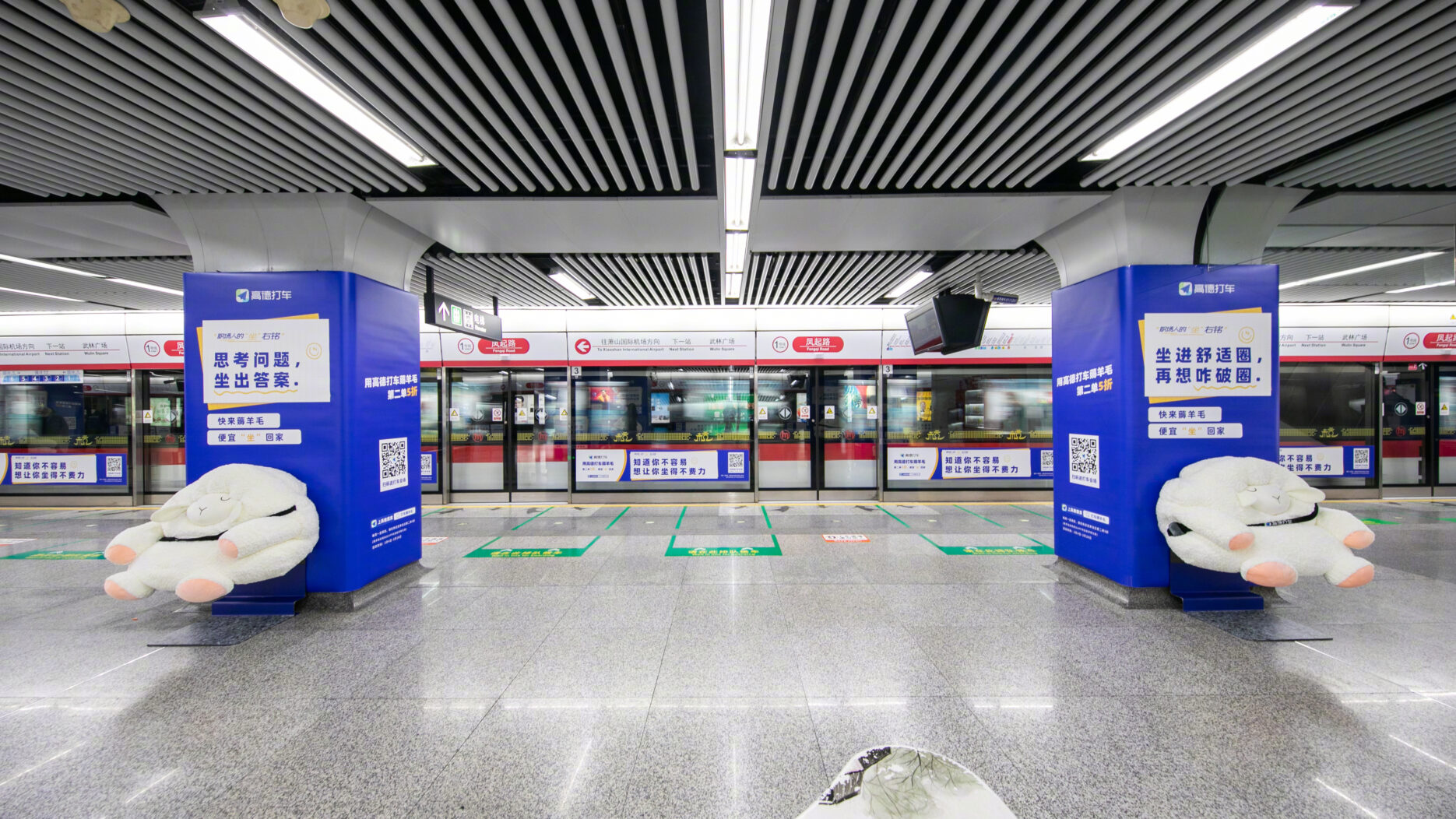On 19 March, commuters at Fengqi Road station of Hangzhou Metro noticed some plush fleece sheep-shaped seats attached to the pillars on the platforms. Each ‘sheep’ is also sporting a seatbelt with the logo of Gaode Maps. The pillars themselves, at the same time, are covered in inspirational quotes aimed at office workers or exhausted commuters urging them to sit and relax.
This is Gaode’s promotion of discounts for its ride-hailing function. It is a play on the fact that the word for “taking” a cab is the same as “sitting” (坐). Gaode Maps is one of the major navigation app providers in China, and also the data provider for Apple Maps in the Mainland. The app is a part of Alibaba’s “local life” arms, along with food delivery service Ele.me and travel booking platform Fliggy.
Although the literal meaning of “薅羊毛” (hao yang mao) is “pulling the wool”, it has a different figurative meaning than the English phrase “pulling the wool over one’s eyes”. In a classic sketch by comedy legend Zhao Benshan, a character keeps pulling loose wool to make a jumper while shepherding, before being accused of “pulling the wool of socialism’s sheep”. From then on, “wool pulling” has become synonymous with individuals taking advantage of a collective, either private businesses or public enterprises.
Like many other recent campaigns, Gaode uses the term to promote its discounts. With 50-70% off ride-hailing, Gaode users are figuratively “pulling the wool” of the ride providers Gaode. With slogans aimed at commuters and office workers, the campaign is promoting cheap rides that can potentially provide physical relaxation and comfort for travellers. The addition of inspirational quotes, on the other hand, provides “emotional value” and comfort for the mind. By poaching travellers at the metro station, Gaode tempts the office workers for an easy ride home after work. If not, at least they can have a seat while waiting for the train.









